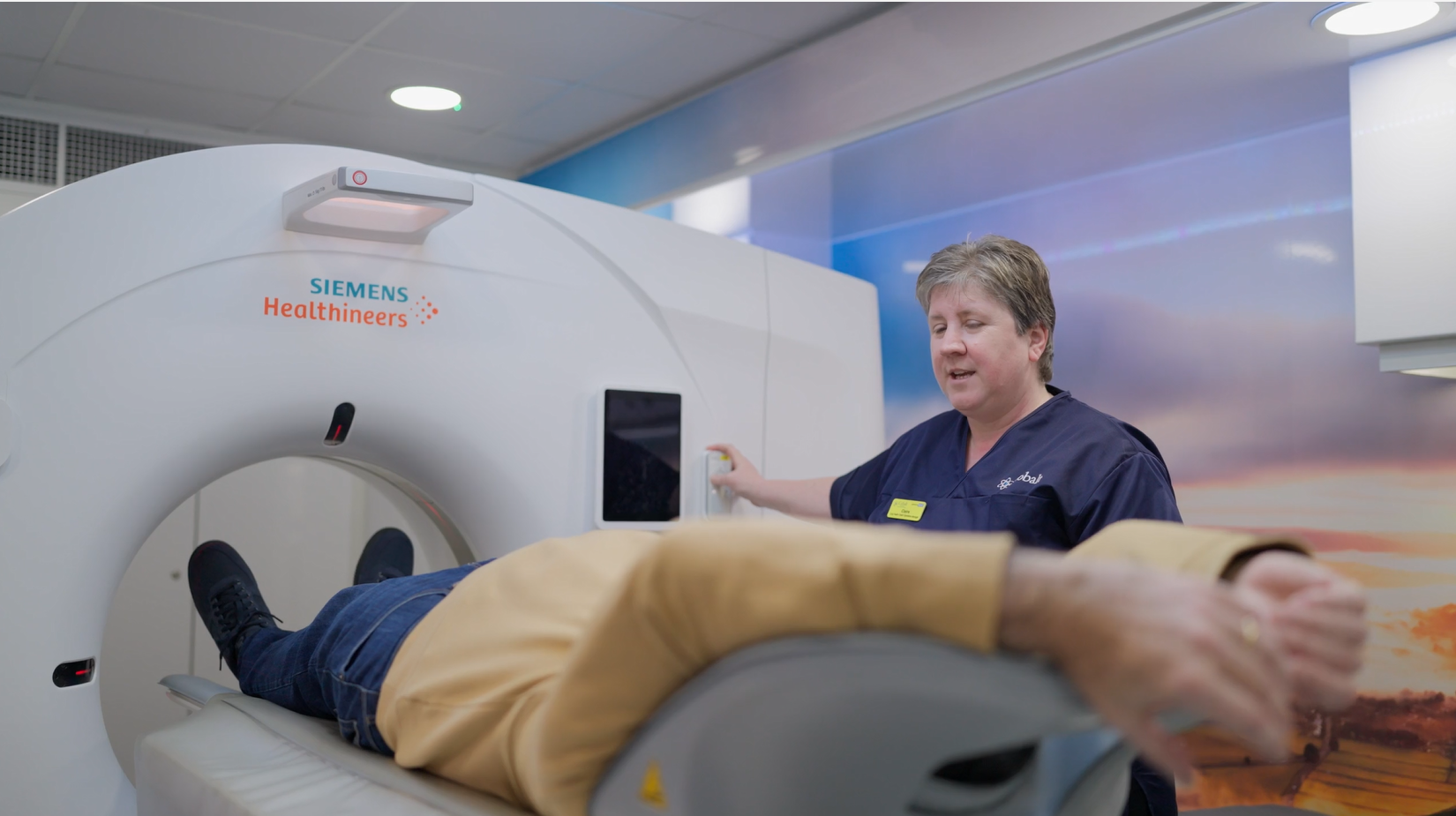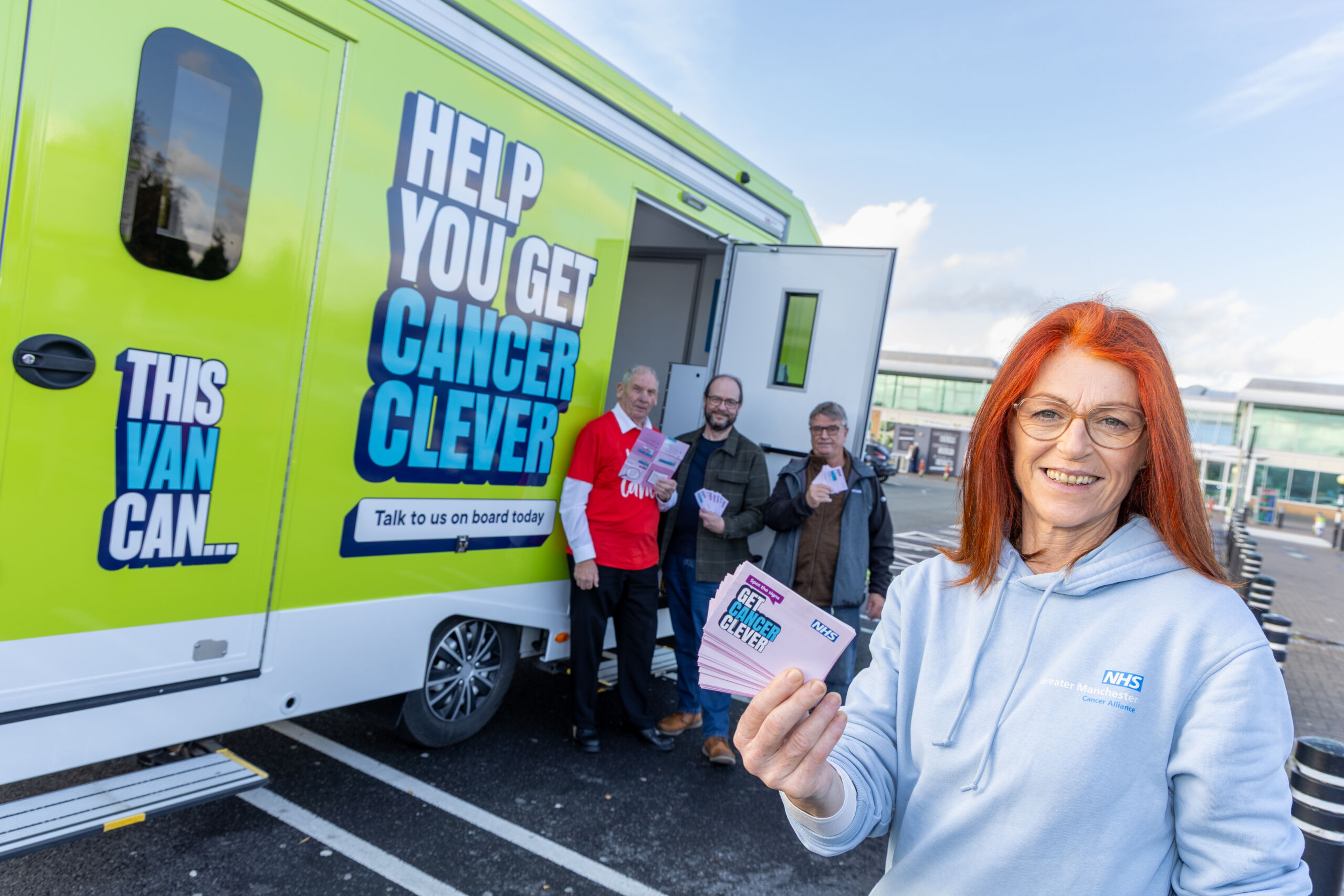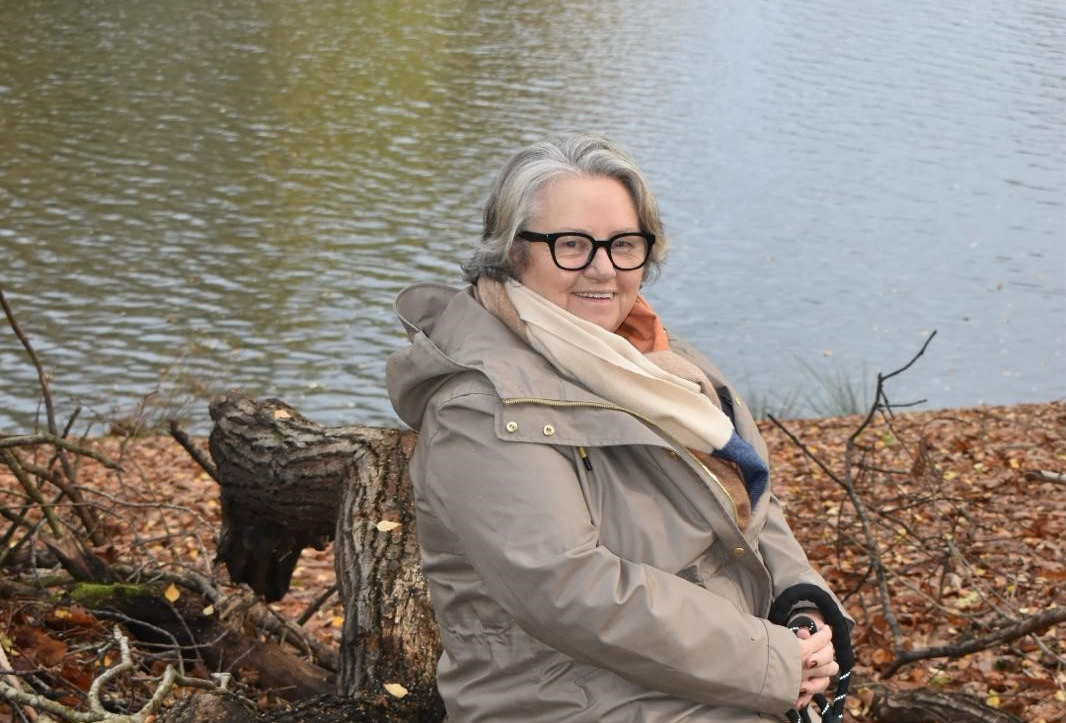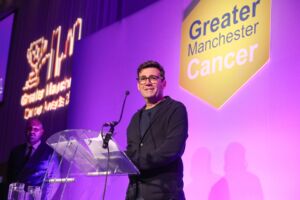
Doctors, nurses, healthcare workers and researchers have been honoured by the Greater Manchester Cancer Alliance at the first-ever Greater Manchester Cancer Awards. This December we look back at some of the worthy winners from October.
The Greater Manchester Cancer Awards pay tribute to some of the important work being done in Greater Manchester to improve lives and treatments for people affected by cancer. They recognise the collaborative approach teams take in Greater Manchester to work across organisational boundaries to make things better for patients.
Andy Burnham, Mayor of Greater Manchester, said: “It’s great to see some of the progress being made right here in our city-region. If you look around Greater Manchester, there are some amazing people doing amazing things to support people with cancer, but also to treat people with cancer. That’s why it’s important that we celebrate everything that is being done with the Greater Manchester Cancer Awards, organised by the Greater Manchester Cancer Alliance.”
Teams from the NHS, research, voluntary, community and social enterprise and local authority sectors all submitted entries. A panel of judges – including patient representatives and staff working in cancer from across the city – then whittled down around 60 entries to a final shortlist. The awards were presented in a ceremony hosted by Steve Bland, from the BBC podcast You, Me and the Big C, and attended by Mayor of Greater Manchester Andy Burnham, at the Hilton in Deansgate.
Head judge Miss Susannah Penney, Associate Medical Director at Greater Manchester Cancer Alliance, said: “We were thrilled at the response to our first-ever Greater Manchester Cancer Awards. The standard was very high and it was so tough for our judges to choose the winners.”
Dr Julie Wray, a patient and member of Grater Manchester Cancer Alliance’s User Involvement Network, helped to judge the awards and was there to hand out some of the trophies during the ceremony at the Hilton, Deansgate on Tuesday 18 October.
She said: “I found reading the entries heart-warming and comforting in that so many healthcare staff are deeply passionate to improving cancer care in Greater Manchester. As a patient you are not always aware of what’s going on behind the scenes to improve and advance cancer care, these entries revealed that patients and their family carers are at the heart of GM cancer care services.”
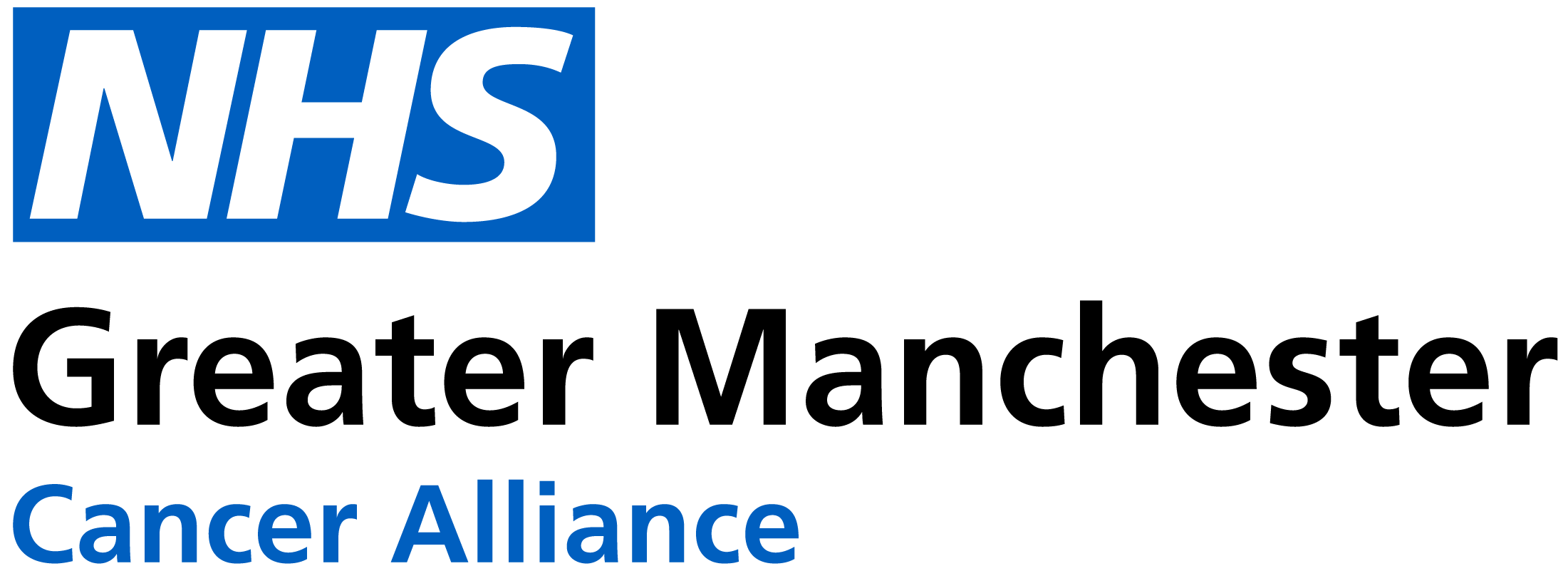

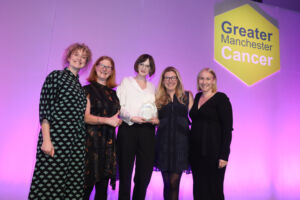 Not all patients can access technology in healthcare for a variety of reasons. This is sometimes known as the digital divide. It is important to address these barriers from the initial assessment of technology in a healthcare setting (technology clinical trial). The aim of this project, led by Dr Donna Graham, was to develop inclusivity guidance to help make sure all future technology clinical trials are as inclusive as possible for all patients.
Not all patients can access technology in healthcare for a variety of reasons. This is sometimes known as the digital divide. It is important to address these barriers from the initial assessment of technology in a healthcare setting (technology clinical trial). The aim of this project, led by Dr Donna Graham, was to develop inclusivity guidance to help make sure all future technology clinical trials are as inclusive as possible for all patients.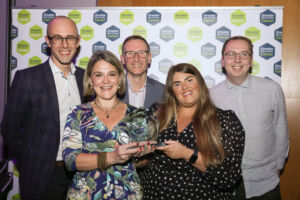 The Christie Electronic Patient Reported Outcome Measures (ePROMs) team is at the forefront of providing patient centred care.
The Christie Electronic Patient Reported Outcome Measures (ePROMs) team is at the forefront of providing patient centred care.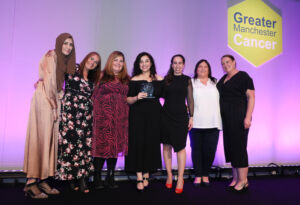 Bone marrow cancer patients from Oldham, Bury, Heywood, Middleton and Rochdale used to have to attend hospital at least 32 times over a 6 to 8 month period to be treated with chemotherapy.
Bone marrow cancer patients from Oldham, Bury, Heywood, Middleton and Rochdale used to have to attend hospital at least 32 times over a 6 to 8 month period to be treated with chemotherapy.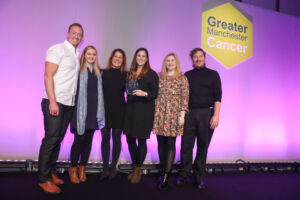 Tobacco is the number one cause of preventable illness and premature deaths, killing around 80,000 people each year in England alone. Smoking damages every organ in the body and causes at least 15 different types of cancer, including 70% of all lung cancer cases. However, smoking is not a ‘lifestyle choice’. It’s a lifelong chronic addiction which often starts in childhood. Once somebody starts smoking, it’s very hard for them to stop.
Tobacco is the number one cause of preventable illness and premature deaths, killing around 80,000 people each year in England alone. Smoking damages every organ in the body and causes at least 15 different types of cancer, including 70% of all lung cancer cases. However, smoking is not a ‘lifestyle choice’. It’s a lifelong chronic addiction which often starts in childhood. Once somebody starts smoking, it’s very hard for them to stop.